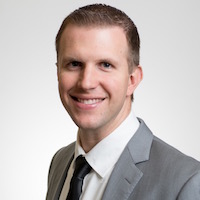
Nicolas Allen
Health care costs are a significant concern for many Americans, particularly for those approaching retirement. One increasingly popular way to manage medical expenses is to save into a Health Savings Account (HSA). If you have access to an HSA, read on for details on how you may use it to optimize your healthcare savings.
The fundamentals of using HSAs
In order to have access to an HSA, you generally must be covered under a high deductible health plan (HDHP) and have no other form of health coverage. Medicare participants cannot make HSA contributions. High deductible health plans require you to make larger out-of-pocket payments to meet the plan’s deductible amount. The minimum deductible is $1,350 for an individual or $2,700 for a family. The total out-of-pocket maximum (including deductibles, co-payments and co-insurance, but not premiums) can be as high as $6,650 for an individual and $13,300 for a family.
Since HDHP plans come with larger up-front costs, they generally offer a HSA to help participants manage their medical expenses. In 2018, individuals can contribute up to $3,450 annually to their HSA while families (two or more covered under the same plan) can make an annual contribution of up to $6,900. Contributions can either be made on a regular basis (such as monthly deposits into your account), at various times during the year or even all at once. All HSA contributions for 2018 must be made by April 15, 2019, the tax filing deadline.
The advantages of using HSAs
HSAs offer three key benefits. First, they provide a flexible source of savings to cover a variety of out-of-pocket qualifying medical expenses. Examples include prescription drugs, x-rays, urgent care, dental care, eyeglasses, eye surgery, or even your insurance deductible. Check with your tax professional or visit irs.gov/forms-pubs/about-publication-969 to learn what expenses you can cover with an HSA.
The second benefit HSAs provide is a tax-efficient source of funds. With an HSA, you can:
— Deduct the value of any contributions to an HSA from your income taxes, even if you don’t itemize deductions;
— Exclude from your income any contributions made to your HSA by your employer;
— Accumulate earnings (interest, etc.) on savings in the account on a tax-free basis; and
— Receive tax-free distributions to pay for qualified medical expenses.
The third key feature of HSAs is that the money doesn’t have to be spent by a specific deadline. Funds can continue to accumulate in the account and be used at a later date, including retirement. The longer you contribute to a HSA, the more likely it is that you will accumulate meaningful savings which you can invest in other areas.
A retirement supplement
Keep in mind that once you retire (and reach at least age 65), you can enroll in Medicare to help cover your heath expenses. Be aware that you will still need to pay premiums, including for Part B, the Part D prescription drug plan and Medicare supplemental insurance policies. In addition, Medicare generally doesn’t cover long-term care expenses, so you may need to purchase some form of long-term care coverage. Visit medicare.gov/coverage/prescription-drugs-outpatient.html to see a list of what costs are covered.
Your HSA savings are available for you to use on a tax-free basis to pay Medicare-related premiums and even to pay premiums for long-term care insurance. This is in addition to other qualified out-of-pocket expenses you may face in retirement.
Tax-free access to dedicated healthcare savings can give you peace of mind in retirement. If you already contribute to an HSA or are considering enrolling in a high deductible health plan, consider working with a financial advisor and tax advisor who can help you evaluate what the account could mean for your financial situation.
Nicolas Allen, CFP® is a Financial Advisor with Ameriprise Financial Services, Inc. in Fresno, CA. He specializes in fee-based financial planning and asset management strategies and has been in practice for 10 years. To contact him, consider http://www.ameripriseadvisors.com/nicolas.j.allen, (559) 490-7030 option 2, or 7433 N. First Street, Suite 102 Fresno, CA 93720.






